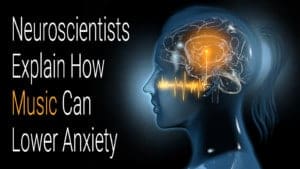Arts education in schools was once though a luxury. Only those most privileged and “most creative” studied art, music, and dance. Worse yet, schools often slash music and art classes due to budget cuts and staff reductions.
But why? Because schools favor standardized test preparation and the essentials of reading, writing, and mathematics. Not so fast!
Recent studies show that arts education is a bit more essential than once previously thought. A background and exposure to the arts are critical for developing well-rounded, prepared learners, and future leaders. Theory and research-backed claims that dance helps cement concepts of mathematics in the minds of students is forcing even the most resistant educator and administrator to take a look at what studying music does for the brain, the body, and also the soul of our students.
Budget cuts: Threatening the survival of a well-rounded education
Schools and educational institutions everywhere face the threat of losing formerly energetic music and art programs in favor of “right-sizing” the budget. Here’s what decision-makers fail to realize in their hasty choices to “cut the fluff” from their budgets. These cuts will not only impact school climate. Indeed, they will negatively impact academic performance and future habits that could diminish the quality of life for these future citizens.
Enlightened educators and school counselors across the country are calling for a renaissance of music and art in our schools. They hope that it will change the future of education from one of despair and limitation to that of possibility and hope. Perhaps we should take a look at what happens in the lives of our precious children when we expose them to the priceless gifts of music and art as part of a well-rounded education. Let the evidence speak for itself.
Benefits of Studying Music and Art on the Development of Children
1. The arts boost brain power and function
Immersing children in the study of music and art actually boosts their brainpower. The arts stimulate a part of the brain that actually enhances academic prowess and achievement. Subjects like reading, math, and even social-emotional skills are positively affected by the study of the arts in school. The arts should never be viewed as a superfluous part of education, but rather an integral part of the culture that affects the whole person.
2. Music and art improve academic achievement
Students who get involved in the arts have a much higher capacity for academic achievement than their counterparts who do not have access to the same opportunities. The study and application of the arts require that kids excel at something outside the classroom; its study helps students stay engaged in school, increases motivation, and even improves attitude and achievement.
According to recent studies on arts and academics, a student who is involved in the study of art and music is more likely to achieve the following:
- Be recognized for academic achievement
- To participate in rigorous math and science courses
- Likely to have better attendance in school
- More likely to hold positions of leadership as they get older
Even those children who come from economic and socially disadvantaged backgrounds experience more significant academic achievement than their peers who do not choose to study the arts. More schools would do well to emphasize the arts as part of a well-rounded, comprehensive curriculum.
3. Study of the arts improves memory
If you would like your children to remember where they left their homework, when to brush their teeth, and when they last saw their tennis shoes, study and immersion in art and music might help. Music participation has been proven to have a significant impact on memory and learning; exposing children to music at an early age has shown to help children decode and learn sounds, decipher word sounds and meanings, and even improve motor skills. All of these skills serve to enhance memory and make brain function and recall more efficient.

4. Music and art enhance creativity
Effects of enhanced creativity fostered through music and art extend far beyond these two disciplines. Music and art activate parts of the brain responsible for creative, “out of the box” thinking. Children learn skills of thinking creatively, problem-solving, and taking risks, which can all serve them well as they navigate through life. Many of today’s CEO’s are musicians or artists for the sheer enjoyment of it, and they attribute many of their leadership skills to their earlier study of the arts.
5. Music and art improves social skills
Team sports are not the only activities that teach valuable social skills; working in a group to tackle an instrumental piece or put a sculpture together teaches kids to navigate relationships, find common ground, and work toward a common goal. Putting personal differences aside in favor of a greater good and outcome is a precious social skill indeed, and children who learn this early in life will be more successful in relationships.
6. Study of the arts improves language and reading skills
Studies have shown that children’s brains develop faster through the study of art and music; children develop rich vocabularies and learn to express themselves as they immerse themselves in the process of making and creating art and music. Patterns found in music are similar to those that help build fluency in reading; the more you can expose your children to the arts as part of quality education, the more significant their development will be.
7. The arts enhance critical thinking skills
The creative process of art and music education helps children develop critical thinking skills that they will utilize across other disciplines to facilitate learning. Visually learning through painting, drawing, and sculpting provides opportunities for interpreting this data and learning visual-spatial skills. Spatial-temporal reasoning is developed when children study music from a young age.
Indeed, this reasoning skill is a precursor to abstract thinking, logical thinking, and the type of problem-solving needed for high functioning activities. Think of disciplines such as engineering, mathematics, and physics. Start practicing, kiddos!
8. Study of the arts builds confidence
As kids practice skills required by art disciplines and improve these skills, their confidence grows. Children who participate in group music and art engage in the process of giving and receive feedback from others. Thus, they learn to take criticism and develop a healthy sense of self-respect. All of these skills help to build the kind of confidence that will propel them to success later in life.
9. Study of the arts encourages children to make cultural and personal connections
Exposure to different types of art and music can create a sense of cultural awareness for children. Learning background information about composers and artists brings up concepts of cultural diversity, contribution, and excellence.
Seeing other cultures through the lens of an art masterpiece or a musical score gives students a different perspective about culture. Indeed, they experience it, rather than merely reading about it from a textbook. Learning about these cultures allows children to appreciate differences among people. And then, they make personal connections between their own culture and those that they are studying.
10. Study of the arts improves discipline
Studying art and music teaches children a sense of control and responsibility. Kids realize early on that, to achieve artistic excellence, they must commit time to their study. They learn they need this dedication, regardless of how much natural talent they may possess. Committing to the process of investigation, application, and practice, students realize that they are able to achieve greatness if they dedicate time and attention to it. These valuable discipline skills will help children develop characteristics of perseverance, patience, and diligence as they set up habits for attaining goals that will benefit them in all areas of life.
11. The study of the arts can reach the “unreachable.”
Youth disengaged from school and lacking a sense of belonging and community are most at risk for failure or even harm. Quite often, music and art provide these students with an outlet for expressing themselves. And, they give them a place to belong where they might be failing in the classroom. Continued study of the arts will enhance academics. Furthermore, as these students continue to thrive through the arts, they soon learn to transfer their artistic success to academic opportunities in school.
12. Study of the arts provides more significant opportunities in education
Having the opportunity to work with an artist-in-residence, or to play with award-winning musicians as part of an outreach program are all opportunities that children who study the arts can take advantage of.
Additionally, they receive other unique opportunities, including some of the following:
- Experiencing fine art in a pristine gallery
- Traveling the globe with an all-state orchestra
- Hearing world-class performing groups
Those are just a few of the exceptional opportunities these children have as they continue the process of learning and growing through the arts.

Final Thoughts: Music and Art Are Necessary for a Well-Rounded Education
Immersing children in the arts from a very early age will enhance their learning and brain development. Besides that, it will also provide them opportunities to grow as individuals and connect with a more beautiful expression of life. Consider the importance of art and music as an integral part of your child’s education. You’ll see what wonderful experiences they will receive in return!
The post Counselors Explain What Happens When Kids Study Music and Art appeared first on Power of Positivity: Positive Thinking & Attitude.
【Top 10 Malaysia & Singapore Most Beautiful Girls】Have you follow?

